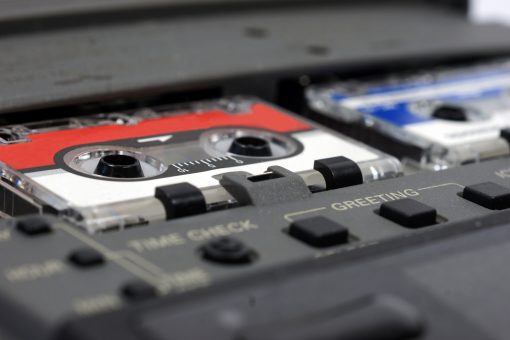Recording academic research interview should be a fairly straightforward process if you follow these top 10 tips from University Transcriptions:
1. Put your subject at ease.
There is nothing worse than starting an interview with somebody talking at 90 miles per hour because they don’t know who you are, the whole thing is stressing them out and they are unable to relax. Most people talk a lot faster when they are stressed and if they talk faster it makes it considerably harder for you or a transcriber at a later stage to decipher what they have said. You can avoid this simply by asking them a few questions before you record the interview, such as how their journey to the place of recording has been or what they think of the weather today. Ask a few questions about themselves and their families and generally be nice to them. Obviously if you intend to put them under serious amounts of stress during the interview you probably don’t want to do any of this and instead glare at them and be as menacing as possible!
2. Make sure you write down any names of subjects referred to during the interview.
If you transcribe the interview yourself or ask a transcription company (University Transcriptions) to do it for you, then one quick and easy way of speeding up the process is to make sure that the person doing the transcription can see immediately who the parties are. It can be very difficult to identify names if you are listening to a recording and were not actually present during the session.
3. Make sure the subject is comfortable.
A comfortable person being asked questions is more likely to relax a little bit more and give you better responses to your questions, as well as be more responsive to the whole process. Sitting in a room that is 10 degrees centigrade, on a hard wooden bench, is not going to lend itself to you getting good responses to your questions. Again this does not apply if you are intending to deliberately subject the interviewee to high levels of stress!
4. Switch off anything that could be making a whirring noise.
We get so many different recordings sent to us where the researcher hasn’t thought through the problem of an air conditioning unit or similar whirring in the background and blotting out most of what is being said.
5. If the subject is talking really quickly throughout the interview try to slow them down.
This will be of benefit to you and any transcriber at a later date. It can be very difficult indeed to follow somebody at high speed.
6. Make sure you have a glass of water on the table for the subject.
This may seem fairly simple, but as transcribers over the last 20 years, we have had so many recordings sent to us where the subject is coughing away because they haven’t got anything to soothe their throat etc. It doesn’t take much just to get a glass of water or a bottle of water and put it on the table. Most people won’t use it of course, but there will always be one person suffering with a cough or similar.
7. Speak clearly and concisely and try to converse at a slower speed than you normally would.
Obviously this does not apply if you are looking at Jefferson transcription, but if you are simply recording a research interview, make your questions clear and understandable for when you come to type them up. If you speak slowly and clearly you will probably find that the subject you are conversing with will slow down their speed as well.
8. Try to look the subject in the eye whilst you are interviewing them.
We have noticed ourselves during academic research interviews as subjects that quite a few academics are not confident enough to look at the person they are interviewing. In the world of business it is very common during interviews to try and maintain eye contact during a job interview but it seems to be a perpetual problem for academics.
9. Try not to sit too far away from your subject and make sure they are sat comfortably at a table if possible and at arms length.
If you sit too closely you can put the interviewees under pressure without realising it and if you sit too far away it almost seems like you are disengaged. If you are disengaged from the subject it is likely that they’re not going to give you as good quality answers as if they feel that you are listening to them. This applies also to the principle of maintaining eye contact as much as possible.
10. Wear comfortable but smart clothing.
We have heard horror stories of academics turning up to interview subjects smelling strongly of cigarette smoke, reeking of beer or wearing clothes that should have been burnt or put in a skip many years ago. Just remember that people’s perception of your questions are going to be much more acute if they can see that the person asking the questions is a serious academic and not someone who smells as if they have just rolled through a farmyard.
These are our top tips for academic researchers recording interviews. If you require assistance transcribing your interviews please contact universitytranscriptions.co.uk where we would be happy to assist.









